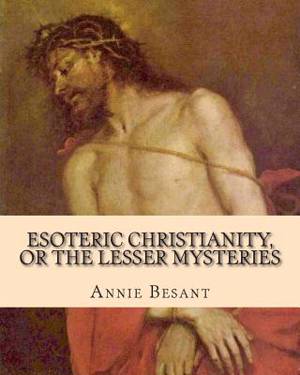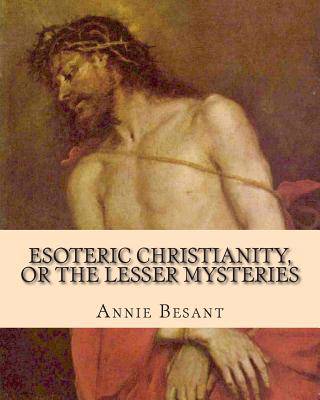
Door een staking bij bpost kan je online bestelling op dit moment iets langer onderweg zijn dan voorzien. Dringend iets nodig? Onze winkels ontvangen jou met open armen!
- Afhalen na 1 uur in een winkel met voorraad
- Gratis thuislevering in België vanaf € 30
- Ruim aanbod met 7 miljoen producten
Door een staking bij bpost kan je online bestelling op dit moment iets langer onderweg zijn dan voorzien. Dringend iets nodig? Onze winkels ontvangen jou met open armen!
- Afhalen na 1 uur in een winkel met voorraad
- Gratis thuislevering in België vanaf € 30
- Ruim aanbod met 7 miljoen producten
Zoeken
€ 17,45
+ 34 punten
Uitvoering
Omschrijving
Given Annie Besant's activity in pursuing the rights of women, humanitarian causes, the mysteries and occult teachings, her interest in freemasonry and subsequent leadership and activism comes as no surprise. She pursued freemasonry with equal vigor when it was mentioned to her that there was a masonry that "accepted women as well as men". She saw freemasonry, in particular co-freemasonry, as an extension of her interest in the rights of women and the greater brotherhood of man and saw co-freemasonry as a "movement which practiced true brotherhood, in which women and men worked side by side for the perfecting of humanity. She immediately wanted to be admitted to this organization", known now as The International Order of Co-Freemasonry, Le Droit Humain. Besant was a prolific writer and a powerful orator. In 1889, she was asked to write a review for the Pall Mall Gazette [6] on The Secret Doctrine, a book by H.P. Blavatsky. After reading it, she sought an interview with its author, meeting Blavatsky in Paris. In this way she was converted to Theosophy. Annie's intellectual journey had always involved a spiritual dimension, a quest for transformation of the whole person. As her interest in Theosophy deepened, she allowed her membership of the Fabian Society to lapse (1890) and broke her links with the Marxists. When Blavatsky died in 1891, Annie was left as one of the leading figures in Theosophy. Her most important public commitment to the faith came in 1893, when she went to present it at the Chicago World Fair. Soon after becoming a member of the Theosophical Society she went to India for the first time (in 1893). After a dispute in which William Quan Judge, leader of the American section, was accused of falsifying letters from the Masters, the American section split away. The remainder of the Society was then led by Henry Steel Olcott and Besant and is today based in Chennai, India, and is known as the Theosophical Society Adyar. Thereafter she devoted much of her energy not only to the Society, but also to India's freedom and progress. Besant Nagar, a neighborhood near the Theosophical Society in Chennai, is named in her honor.
Specificaties
Betrokkenen
- Auteur(s):
- Uitgeverij:
Inhoud
- Aantal bladzijden:
- 152
- Taal:
- Engels
Eigenschappen
- Productcode (EAN):
- 9781461192084
- Verschijningsdatum:
- 16/05/2011
- Uitvoering:
- Paperback
- Formaat:
- Trade paperback (VS)
- Afmetingen:
- 203 mm x 254 mm
- Gewicht:
- 312 g

Alleen bij Standaard Boekhandel
+ 34 punten op je klantenkaart van Standaard Boekhandel
Beoordelingen
We publiceren alleen reviews die voldoen aan de voorwaarden voor reviews. Bekijk onze voorwaarden voor reviews.











